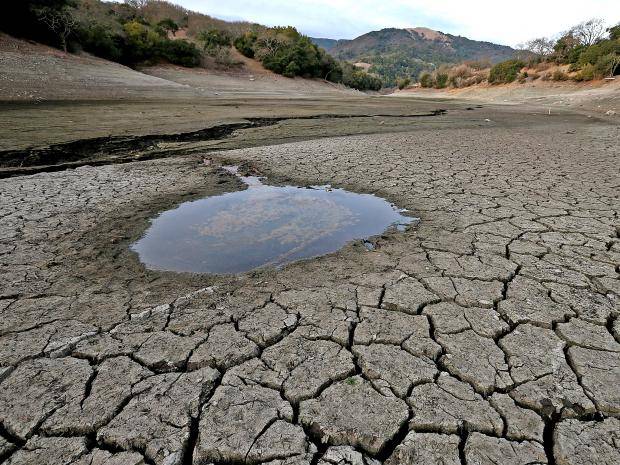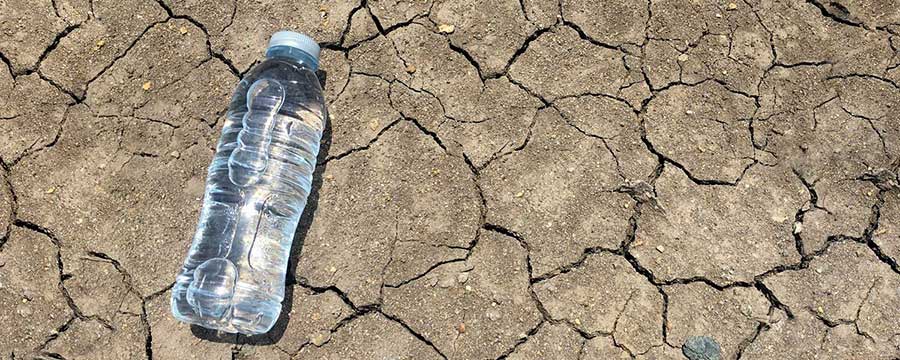Water is one of the most crucial sources for life on Earth, often causing problems when at lack. Local economic, environmental, and social conflicts are caused by water scarcity. Such conflicts derive from the economic benefits for the company, water privatization, by companies such as Nestle – Nestle Pure Life (bottled water). These big companies privatize – purchase – water sources from towns for meager prices.
This happens to benefit them as they bottle the water, which costs them very little and makes huge profits from selling it. This benefits only the company, as they drain the water source, it damages the environment, however, most often, no one can do anything about it, against the company, as officially, the company owns the water.
An example of a situation like this can be seen in Michigan, where, as mentioned by ‘Detroit Free Press’, “Nestle pumps 400 gallons of water per minute, about 100 000 gallons of water per day, for a price of $200 per year”, in no way benefiting Michigan and its citizens, furthermore, its environment. Nestle continues, “Many parts of southern Ontario and British Columbia have faced drought conditions in recent years…” As the article states, the pumping of the water causes great environmental damage and the authorities can’t take action against it.
The people living in that area experience these droughts and can’t do anything about them. “… yet Nestlé, a giant bottled water corporation, continues to pump millions of liters of water from watersheds in Wellington County, Ontario, and Hope, British Columbia.” -The Council Of Canadians reports. Water privatization is especially a concern to today’s world as it demolishes the environment, furthermore causing multiple inconveniences to the towns and townspeople from which the water is being privatized, deriving local environmental, economic, and social conflicts.
One of the most visible downsides of Nestle’s water privatization is environmental damage. The biggest water companies which bottle and sell the water from natural sources that they have privatized for very low prices, taking ownership of small towns’ sources, to their economic benefit and the towns’ loss in environmental damage.
This creates an environmental conflict between them and the town and the townspeople, enraged by limited or no access to the natural resource – water.
Water is, in fact, a renewable resource although its misuse brings fatal consequences, a water misuse can be illustrated for example by its drainage to the point where its source conditions are in the state of draught or cause problems to the citizens.
`…the global water supply is in fact rapidly declining due to misuse, pollution, and for-profit privatization gambits…” notes Foodispower in response to Nestle’s water privatization which causes great environmental damages. “…Meanwhile, as the human population continues to grow, water consumption is doubling every 20 years,[4] and other factors (like global warming) will also have major impacts on future freshwater reserves.[5]” meaning that the water resources we have now should be protected, used sustainably, without compromising between the importance of the environment the water is being drained from and the benefits for a company like Nestle.
This environmental water resource conflict on a local scale is happening right now in Flint, where due to lead-poisoning, a safety hazard, the water is undrinkable.
Nestle takes advantage of that, paying only the permit of $200 per year to bottle water near Flint, making huge profits. “While Flint battles a water crisis, just two hours away the beverage giant pumps almost 100,000 times what an average Michigan resident uses into plastic bottles” according to Jessica Glenzain expressing her concern about this paradox of a water crisis in contrast to Nestle’s actions, Michigan (The Guardian).
Michigan suffers from a similar situation, where Nestle is taking water from the Great Lakes. “We can’t, we don’t have the power to say no arbitrarily. We can’t just say no for reasons that aren’t attached to the law,” said Matt Gamble, the Department of Environmental Quality supervisor who’s coordinating the response effort.
Now the Michigan Department of Environment, (Great Lakes, and Energy) is powerless to stop the company from pumping the water. California experiences similar events, “Nestlé has already used its limitless resources to continue to drain California’s San Bernardino National Forest’s water supply, claiming rights to the water-based on a 150-year-old permit…”, again this illustrates the environmental damage caused by this water privatization and bottling for profits by Nestle “…Now a small Michigan town is locked in a legal battle with food giant Nestlé over the town’s own water.” explicates an article focused on fighting such unfairness caused by big companies making enormous economic benefits, parallelly creating environmental conflicts of local people who oppose their actions – SumOfUs (Fighting for people over profits).
This does not only happen in the USA, and nestle is not the only company owning these actions `Soon after a Coca-Cola Company plant was licensed to manufacture their beverages in the village of Plachimada, they started unlawfully pumping an additional 1.5 million liters of water a day from local reserves. This caused the water table to fall—leaving farmers without enough water to irrigate their crops, and draining the community’s drinking water supply.” Coca-cola in India works on a similar strategy as Nestle.
Privatizing the water source, inflating tension between the citizens and the company, benefiting from this privatization of a water source meanwhile the citizens and their environment suffer losses. When there is not enough water for the irrigation of crops, the environment suffers. These are just some of the examples of where Nestle drains the water sources of a helpless town. These types of conflicts limit the townspeople’ access to water and destroy their environment, when big companies like Nestle benefit from it, in that way creating local environmental conflicts.
Nestle uses this operating tactic in many towns, making billions on their water industry, destroying the environment in multiple areas “ Nestlé, one of the largest food corporations in the world, is also in the water business, leasing or owning 50 spring sites throughout the US ..” notes Foodispower, reflecting on Nestle’s water privatization benefits as well as highlighting the amount of environmental damage this brings “… in many places where Nestlé operates, they have unlawfully extracted water from aquifers,[17] engaged in price-gouging tactics,[18] and polarized communities.”, Nestles actions economically enrage towns from which the water is being extracted as their environment suffers meanwhile Nestle triumphs their economic benefits.
Works Cited
- “Nestlé Pays $200 a Year to Bottle Water near Flint – Where Water Is Undrinkable.” The Guardian, Guardian News and Media, 29 Sept. 2017, www.theguardian.com/us-news/2017/sep/29/nestle-pays-200-a-year-to-bottle-water-near-flint-w here-water-is-undrinkable.
- “Help Stop Nestlé’s Water Theft.” SumOfUs,
- Staff, ThumbWind Publications. “Are Foreign Companies Stealing Great Lakes Water? ThumbWind.” ThumbWind, 16 Nov. 2020, thumbwind.com/2018/03/06/foreign-companies-stealing-great-lakes-water/.
- Gray, Kathleen. “Michigan OKs Nestlé Permit for Increased Water Withdrawal for Bottled Water Plant.” Detroit Free Press, Detroit Free Press, 2 Apr. 2018, eu.freep.com/story/news/2018/04/02/michigan-oks-nestle-permit-increased-water-withdrawal-bottled-water-plant/479896002/.
- “Protect Water: Boycott Nestlé.” The Council of Canadians, canadians.org/nestle.


